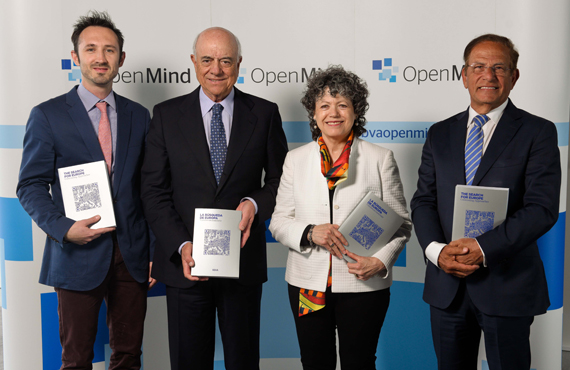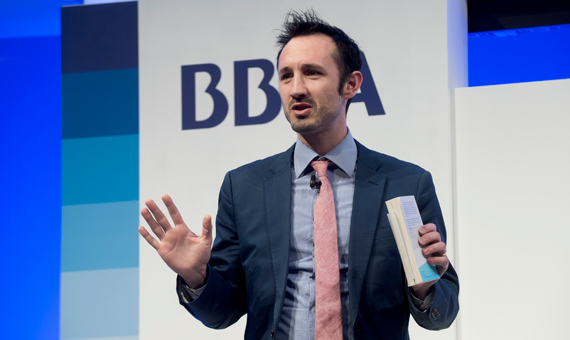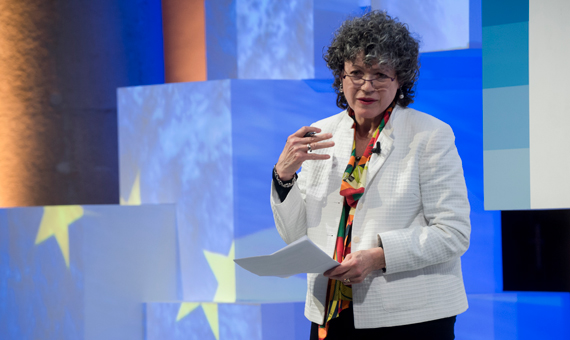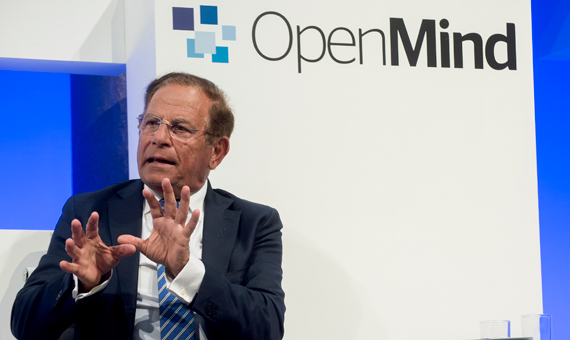Europe is the world’s largest economic and trading power. The European Union project and its future are therefore of vital importance for both its member States and the rest of the world. This is why OpenMind is focusing on the current and future challenges facing the European Union, the most ambitious economic and political integration project ever attempted.

Francisco González, Group Executive Chairman of BBVA, presented the latest book in the OpenMind series, “The Search for Europe: Contrasting Approaches”, at an event in Madrid attended by three of the 23 authors involved: Christopher Bickerton (Cambridge University), Vivien Ann Schmidt (Boston University) and Bichara Khader (Université Catholique de Louvain). The book contains 23 articles setting out the viewpoints of various international authors on the path to the future of Europe.
Francisco González shared his view of the economic challenges facing the Union, highlighting the need to “foster structural reforms to improve market flexibility, encourage company creation, tackle monopolies and stimulate research, development and innovation”. Although banks are currently facing an enormous challenge, Mr. González argued that, in the long term, the technological revolution in banking will prove an excellent opportunity for those who can adapt to the demands of the new digital world. He has contributed an article to the book supporting his argument, entitled “Europe, between Stagnation and Technological Revolution: Digital Banking as a Driver of Economic Growth”.

In the political sphere, Christopher Bickerton expounded his thesis on nation-states and EU member states. What happens when a state becomes part of the EU? And what happens if it leaves? What makes a member state and a nation-state legitimate? According to Bickerton, the problem is that the public has the least say in the current system: so where does the power to legitimize a state reside? This is an interesting point to consider, for example, in the light of the imminent UK referendum on whether to leave the EU -Brexit-.

Vivien Ann Schmidt addresses the challenges posed by European integration for national democracies from a different perspective: how the demands from European bodies on national governments are resulting in “politics remaining at the national level, whilst policy-making is increasingly migrating to the EU realm”. In the same line as Bickerton, she also proposes the idea that political life in the EU today “is incapable of combining representation and responsibility”. This results in her model of “politics without policies” at the national level, and “policies without politics” at the European level. We come back to the same question: why do the people of democratic EU states not have decision-making powers? You can read her full argument here.

In the midst of all this political uncertainty and the review of the democratic systems of EU member states, culture and religion are acquiring new values and meanings. Bichara Khader, a specialist in the Arab world, sets out a detailed analysis of the relationship between European societies and their Muslim members in his article. Can any justification be found for the wave of extremism sweeping across Europe? What has happened in countries such as France to make third-generation immigrants consider themselves “Muslim” rather than “French?
The answers to these and many other questions about the European Union and its present and future are set out in this book published by BBVA in 2016, which can be downloaded free from OpenMind. Get involved and discover Europe with OpenMind.
Comments on this publication